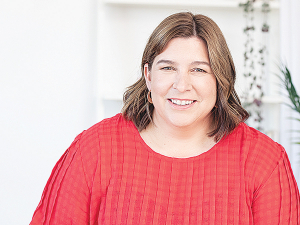Santa's present for the primary sector - an FTA with India
Primary sector leaders have welcomed the announcement of a Free Trade Agreement between India and New Zealand.
 DCANZ executive director Kimberly Crewther says eliminating tariffs will give UK dairy customers and consumers an equal opportunity to choose high-quality NZ dairy products.
DCANZ executive director Kimberly Crewther says eliminating tariffs will give UK dairy customers and consumers an equal opportunity to choose high-quality NZ dairy products.
The Executive Director of Dairy Companies Association of New Zealand (DCANZ), Kimberly Crewther has described the NZ/UK free trade deal (FTA) as a milestone for the industry.
Crewther says it starts the clock on transitioning to completely duty-free entry into the UK market and as of 1 January 2028, NZ exporters will have a level playing field with European competitors into the UK market for all dairy exports.
She says eliminating tariffs will give UK dairy customers and consumers an equal opportunity to choose high-quality NZ dairy products as they have for the European products that currently dominate the trade.
"The UK is a high-value market with discerning customers and consumers who value NZ provenance, sustainability, and safety credentials. It is the world's second-largest dairy import market after China, but tariff disadvantage limited NZ to supplying just 0.1% of the approximately NZ$8 billion worth of dairy products the UK imported in 2022," she says.
Crewther says on May 31, tariffs will be eliminated on a range of dairy products including liquid milk and cream, yoghurt, buttermilk powder, and infant formula. She says the phase-out of tariffs on milk powder, lactose, whey, and other dairy proteins will be completed on 1 January 2026, and the tariff phase-out on cheese and butter will be completed on 1 January 2028.
"The value of the opportunity the FTA provides to build commercial relationships with UK dairy customers and provide opportunity for NZ exporters is significant," she says.
News that the UK FTA will come into effect at the end of May has been widely hailed by NZ's primary sector leaders.
The deal was signed last year and officially approved by the NZ government and now this has been done by the UK government meaning the deal is now 'live' and takes effect on May 31. The announcement came on the eve of the coronation of King Charles III, but there is no indication, he had a personal hand in the timing of the announcement.
The announcement came at a meeting of Prime Minister Chris Hipkins and his UK counterpart Rishi Sunak. Hipkins described the deal as a gold-standard reflecting the close relationship between the two countries. He says the activation of the new trade deal marks a new chapter in the great friendship between our two countries.
The Minister for Export Growth and Trade, Damien O'Connor says everyone should be excited at the news because it allows genuine progress in the reduction of a huge number of tariffs and cost for a huge number of exporters into that market. He says it is expected to boost NZ's GDP by up to $1 billion and expand exports to the UK by over 50%.
"From day on 99.5% of current exports will enter the UK duty-free through a combination of tariff elimination and duty-free quotas," he says.
O'Connor says the dairy and red meat sectors will have significantly improved access to the UK's NZ$3 trillion consumer market for the first time in nearly 50 years. He says the FTA has secured excellent tariff free quotas for dairy and meat producer, which will grow until being fully liberalised by Years 5 and 15 respectively.
"In the case of dairy, having all tariffs phased out is an incredible achievement," says O'Connor.
Other sectors to benefit will be wine, honey and onions. O'Connor says he's proud of the work that's been done to get to this agreement finalised.
He says what the deal has done is re-formalise what has been a very strong historical relationship going back hundreds of years and only interrupted by Britain going into the EU and then leaving.
"This FTA has reset what has been a very strong bilateral relationship," he says.
Controls on the movement of fruit and vegetables in the Auckland suburb of Mt Roskill have been lifted.
Fonterra farmer shareholders and unit holders are in line for another payment in April.
Farmers are being encouraged to take a closer look at the refrigerants running inside their on-farm systems, as international and domestic pressure continues to build on high global warming potential (GWP) 400-series refrigerants.
As expected, Fonterra has lifted its 2025-26 forecast farmgate milk price mid-point to $9.50/kgMS.
Bovonic says a return on investment study has found its automated mastitis detection technology, QuadSense, is delivering financial, labour, and animal-health benefits on New Zealand dairy farms worth an estimated $29,547 per season.
Pāmu has welcomed ten new apprentices into its 2026 intake, marking the second year of a scheme designed to equip the next generation of farmers with the skills, knowledge, and experience needed for a thriving career in agriculture.
OPINION: Staying with politics, with less than nine months to go before the general elections, there’s confusion in the Labour…
OPINION: Winston Peters' tirade against the free trade deal stitched with India may not be all political posturing by the…